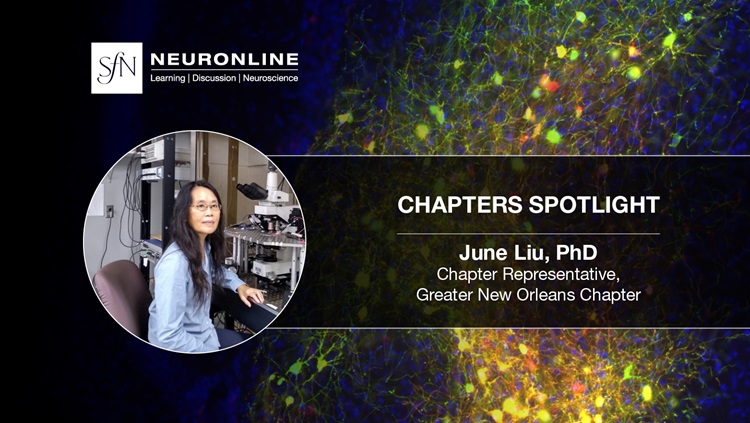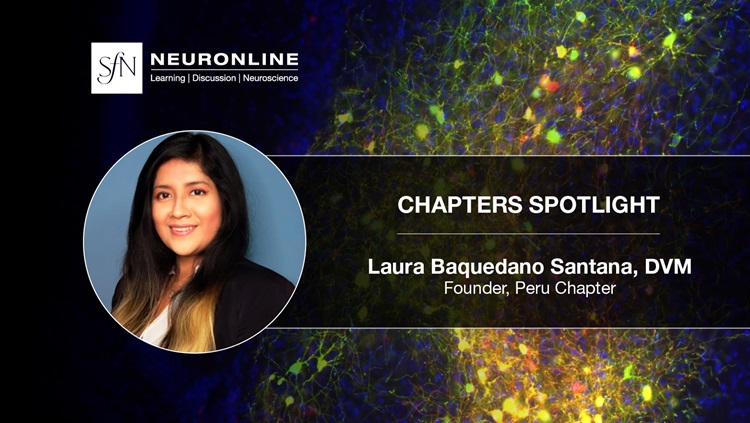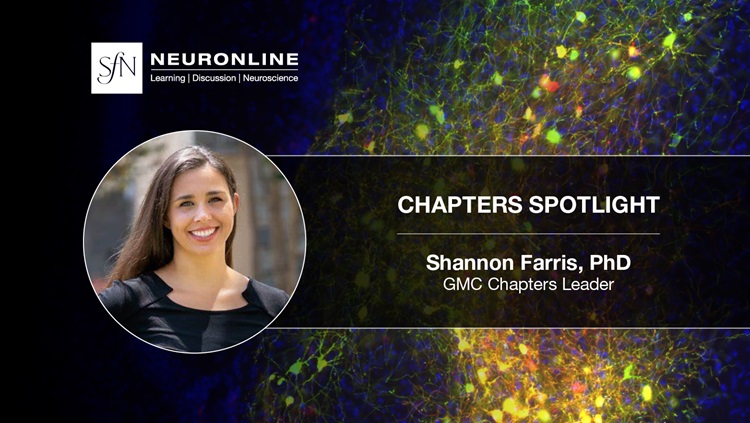Expanding Chapter Horizons: Connecting Local and International Communities
- Featured in:
- SfN Annual Meeting Recordings ,
- SfN Chapter Resources
Interest in neuroscience is increasing across the world. Chapters can play a prime role in connecting people who are interested with the field. Hear SfN chapter leaders from Texas, Michigan, and Maine discuss their experiences developing local and international connections. For more information about SfN chapters and how to get involved, visit SfN.org.
Speakers






Laura Colgin, PhD, is a professor of neuroscience and director of the Center for Learning and Memory at The University of Texas at Austin. She has over two decades of reviewing and editorial experience, including serving as senior editor at eLife and co-editor-in-chief of Progress in Neurobiology. Her laboratory records neurophysiological activity in rats performing learning and memory tasks to uncover learning and memory mechanisms and how these mechanisms are disrupted in memory disorders.








